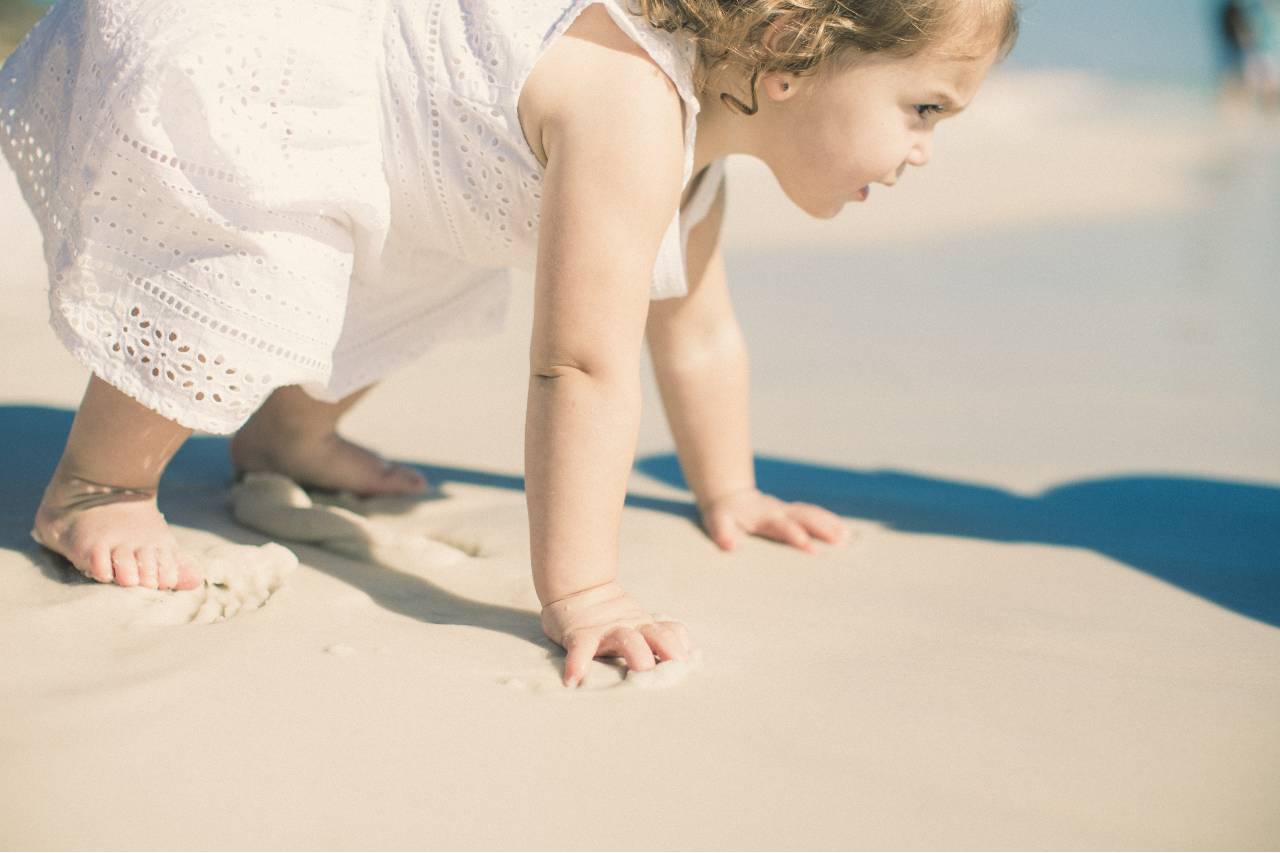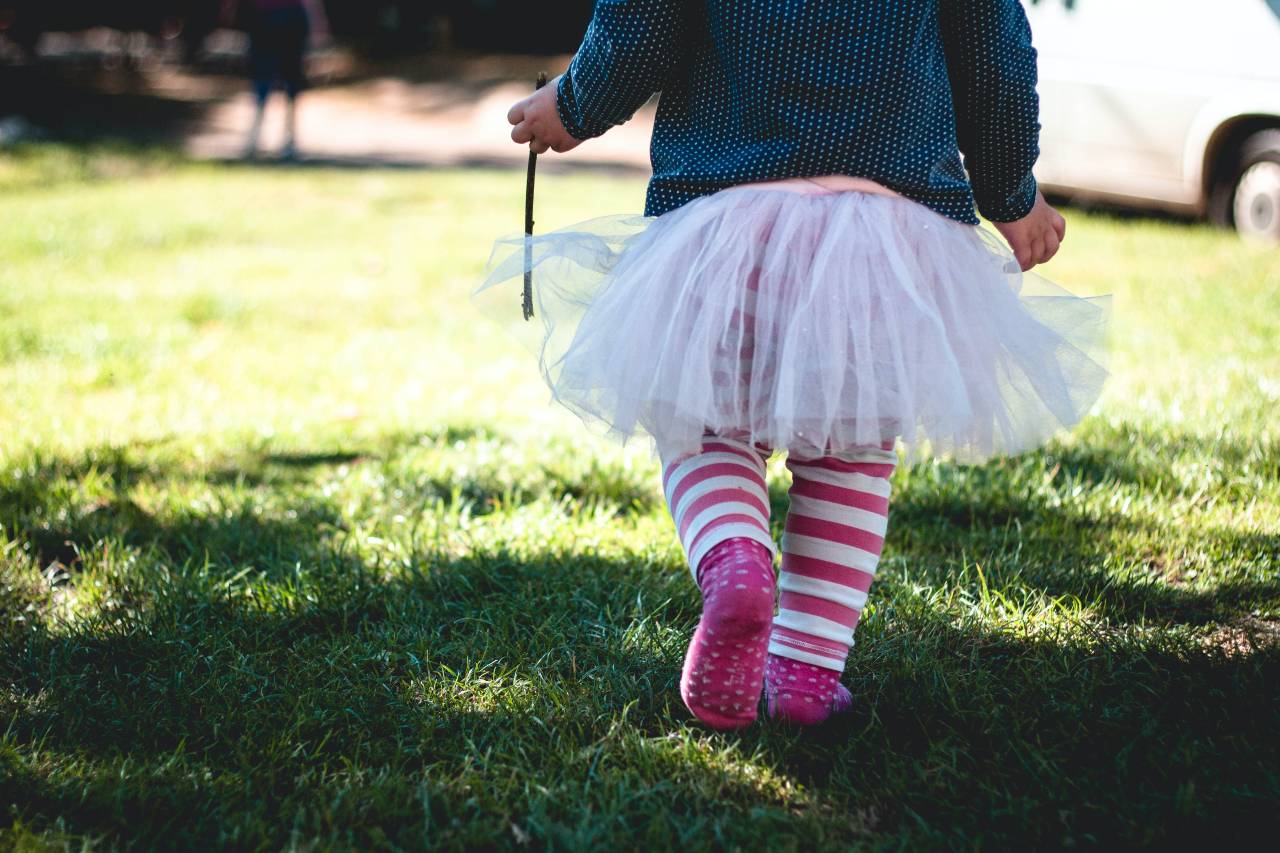
Your baby’s first year of life is full of many exciting milestones. They’ll learn to babble, recognize your face, and by the time they’re nine months old, they’ll probably be crawling. But when do babies start walking? According to the Centers for Disease Control & Prevention, the answer varies, but you may start seeing them take their first steps at around 12 months old.
The time it takes for babies to hit any milestone varies. Everyone develops differently, but for the most part, you can rest easy if your baby isn’t taking steps until or after their first birthday. The CDC reports that at nine months old, your baby should be able to crawl, pull themselves up to stand, and stand upright while holding onto furniture. By the time they’re 12 months old, they may be walking while holding onto furniture for support (also called “cruising”), standing alone, and potentially taking a few steps without holding onto anything. By the time they’re 18 months old, most babies are walking alone, walking up steps, or even running.

A 1976 study by Charles M. Super, a Professor of Human Development & Family Sciences at the University of Connecticut, found that in cultures where parents actively teach their babies to walk, babies could begin taking “assisted steps” by the time they’re 7-8 months old. If a parent has a more laid back approach, a baby could start walking with support by 10-and-a-half months. But if your baby is often restrained in things like slings and carriers, they might not begin walking until later. Parenting Science reports that in general, babies who get more exercise reach motor milestones earlier than babies who don’t.

According to Healthline, there are a few signs that could indicate your little one is ready to start walking. Catching them climbing onto surfaces like couches or chairs is “a developmental signal that your baby is confident about trying new things.” This most likely means they won’t be intimidated by walking when they’re ready to take that step — literally. Healthline also reports that a change in their sleep patterns, and more crying and whining than usual could be a sign of a developmental leap. This means that at the same time they’re learning to walk, their minds are also learning to discover new things. “Your baby’s brain and body could be working double time,” so don’t be surprised if that comes with some behavioral changes.
It’s important to keep in mind that your baby will hit milestones like walking on their own timeline, not yours, but there are several ways you can encourage them to keep trying. What To Expect suggests giving them lots of time outside their stroller or carrier in an open space, so they have plenty of surface area on which to wander. Consider leaving a trail of toys so your baby has to move to reach them, or buying them a push toy, like a mini shopping cart they can use to support their weight as they take assisted steps. Ultimately, bare feet or non-slip socks are the best way for them to help “build muscle tone in their feet and ankles, to help their arches develop, and to learn balance and coordination.” No shoes necessary.

